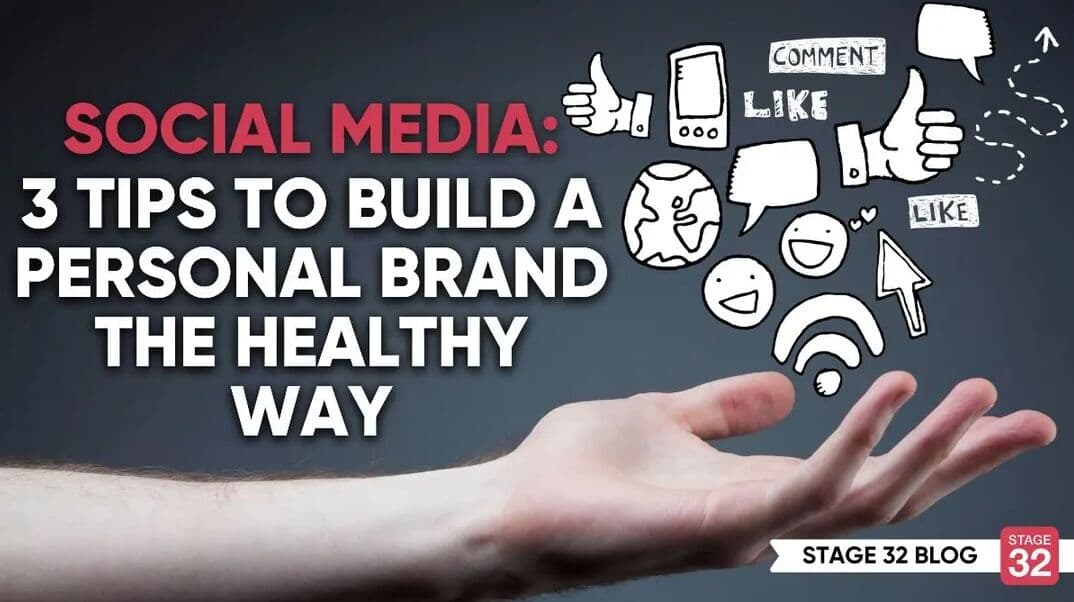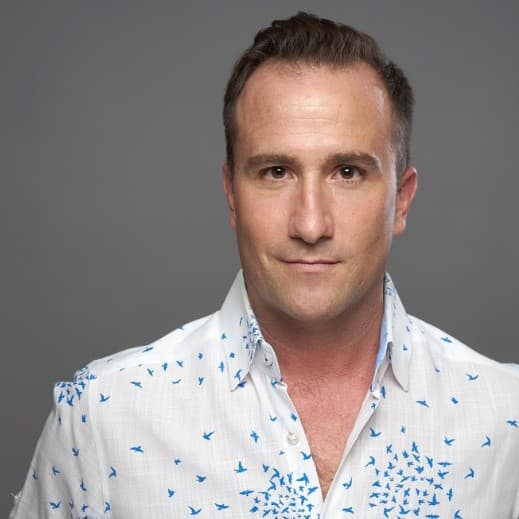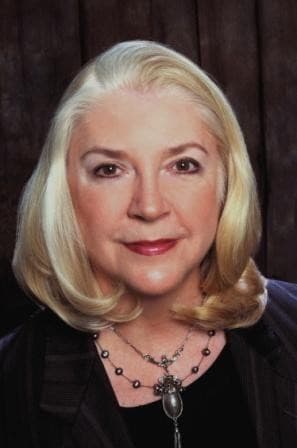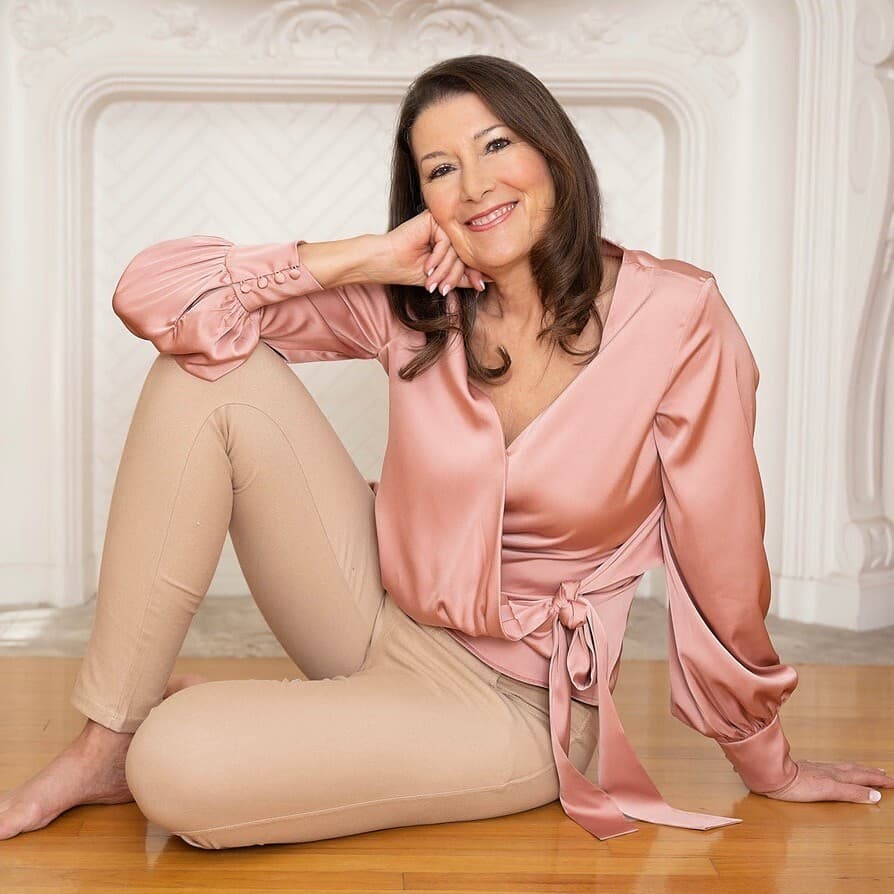An Interview with Composer & Screenwriter Michael A. Levine

An Interview with Composer & Screenwriter Michael A. Levine
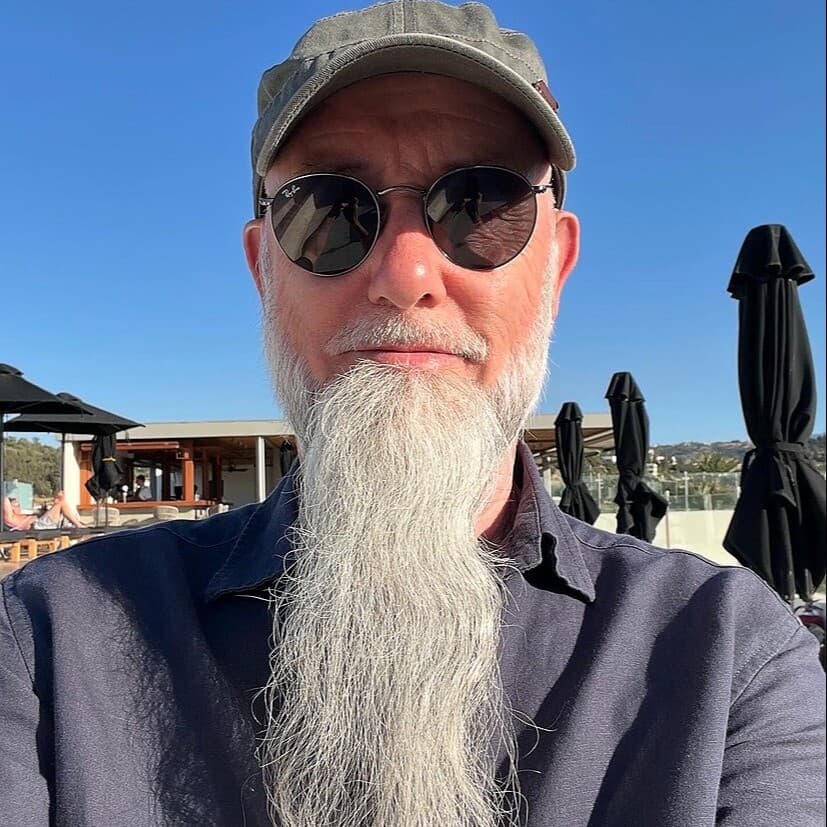
I’m always amazed at who you can come across on Stage 32. Our global community is so vast that there’s no chance of knowing who’s who, unless you take the plunge and start connecting with people you meet whilst sharing comments in the various Lounges or the Blog.
Phil Hardy and I had just published our latest article “How Can You Sell Your Screenplay To A Studio" and I noticed a comment from Michael A. Levine. Michael, by the way, is an award-winning composer. He has not only composed some great music but has diversified into Writing and Production and I thought this would be a wonderful opportunity to help Stage 32 members who were trying to plot a course for their careers. Why not speak to someone who has done this with aplomb?
It turns out he was involved in the creation (as composer) of one of my favorite Jerry Bruckheimer series, Cold Case (with Kathryn Morris – 2003-2010), so we had a short conversation and then I thought this would be a great opportunity to see if Michael was open to being interviewed for Stage32.
He was, and so without further ado, here is that interview...
Geoff Hall: Greetings, Michael.
Michael A. Levine: Greetings back to you Geoff, from across the sea and across the U.S. (I live in L.A.) where we spell it “favorite” and don’t pronounce the H in “herbs” even if it bugs Eddie Izzard.
GH: Hi Michael, it was great to hear from you on the Stage 32 Blog. It brought back lots of great memories about the ‘Cold Case’ show, which I’ve started watching again on Amazon Prime. I just love that theme, with its waves of emotive energy banging out of my speakers.
ML: Darn! Right away, I have to admit I am only responsible for the first two “ah-ah” notes of the theme. (Sung by the wonderful vocalist, Elise Morris). The rest is from a production music album Jerry Bruckheimer fell in love with before I was even involved, a cut called Nara by E.S. Posthumus (brothers Jeff and Rob Pfeifer). Still, I did score every episode for seven seasons and wrote the closing credits music.
GH: I’m wondering how you got from doing a Kit-Kat jingle to scoring the music on ‘Cold Case’? Did you have an agent at this time?
ML: I moved from New York to L.A.’s Topanga Canyon knowing almost nobody. Topanga is gorgeous, but far from the center of filmmaking. I had no agent, no contacts - I was getting nowhere. One day I played some looping electric violin at a local poetry reading at a cafe and a woman behind the counter there said, “You should meet my landlord - Harry Gregson-Williams.”A few weeks later I was at a gig of another woman from the cafe and this skinny English guy standing next to me and I struck up a conversation. It was Harry. He said, “Oh yes, Louise told me about you.” He asked me what I had done and I mentioned, in passing, I had played in an Irish band in my youth. A couple of days later he calls and says, “Do you really play Irish fiddle?” When I answered in the affirmative he asks, “Could you put together an Irish band?” Sure thing, I tell him, not knowing a single Irish musician in L.A. (But how hard could it be?) It turns out we were doing pre-records for a film called Veronica Guerin (starring Cate Blanchett). Harry had booked what was then called Media Ventures (now Remote Control) owned by Hans Zimmer.
During a break in the session, Hans comes in to say hi. I always carried a CD of mine with me which consisted of no film music at all but, instead, weird art pieces and excerpts from Rock operas and ballets I’d written. I handed it to Hans and said, “This is probably coals to Newcastle but…” Two days later he leaves a message on my answering machine, “Hello Michael, this is Hans. I just listened to your album and it’s fucking incredible. Of course, I just came from the dentist so I’m probably just high.”

ML (cont'd): I think the fact that it wasn’t what was expected was key. Hans probably gets 20 links a week from Hans-wanna-bes who do their very best to knock him off. He doesn’t need them - he’s already got himself. Similarly, the best screenwriters take what McKee, Field, Truby - even Aristotle - have to say as just one person’s ideas, not the keys to the kingdom. I once was working for Robert Towne and asked him if he’d ever read McKee’s analysis of a scene from Towne’s Chinatown. He said he hadn’t so I brought it in the next day. He read it on the spot and said, “Very interesting. But it has absolutely nothing to do with what I was thinking when I wrote it.”
Anyway, I end up doing additional music for Hans as a result, later moving into a studio in his complex. But meanwhile, Harry has hit a wall on the climactic murder scene in the movie. It was temped with an excerpt from Gladiator featuring the Armenian wind instrument, the duduk. They can’t license it and doesn’t really work tonally but Jerry Bruckheimer has fallen in love with it. (Beginning to see a pattern?) I tell Harry, “You know, the Uilleann pipes are kind of the Irish duduk.” He says. “You write it.” I did. Jerry liked it. Then the movie was shelved.
Meanwhile, thanks to the Hans connection (and his partner’s lawyer, Mark Berger, putting my CD in a pile that went to Jerry), I got a shot at working on a new show called Cold Case. I met with Bruckheimer's head of TV, Jonathan Littman, who said, “What this show really needs is music like this one cue from one of Jerry’s movies that hasn’t been released yet.” “What movie?” I ask. “You haven’t seen it,” he says. “Like I said, it hasn’t been released yet”. I persist. “What movie?” “Veronica Guerin,” he answers. “What cue?” I ask. He looks at me funny. “The murder scene.” I smile and say, “I think I can do something like that.” I did that show for seven seasons. And barista Louise? She is Louise Runge who is now a producer at OneZero Films with credits on a half-dozen features.
GH: And you won 8 ASCAP Awards for your work? Did that mean the agents were coming out of the woodwork looking for you?
ML: Once I got the show, getting an agent was easy. But it’s not over and done with then. You still have to keep your agent informed about things you’ve heard about that you think you’d be right for and - let’s be honest - the very fact that you exist. Agents work very hard at what they do but they are tossing crap against the wall and hoping something sticks like everyone else. Give them ammunition.
GH: When the rubber hits the road on a show like this, what were your time commitments like? Did you have anything left for your family and friends?
ML: What’s a family? What’s a friend? Oh, right! Seriously, it’s hard enough doing one show. But at one point I had two, plus films and recording projects on the side. I called up Snuffy Walden (West Wing) who had, like, 10 shows, and asked, “How do you do this?” He answered, “Delegate everything you don’t absolutely have to do yourself.” It’s much harder when you have small children, especially for women for reasons I don’t think I have to explain but are enormously unfair. Having a supportive partner is incredibly helpful, but not a panacea (and can be very hard on your partner).
GH: What was the process like, of say, writing the theme? Was there a brief to follow? With suggestions of moods and tones, atmosphere? (Can we talk here about developing your skillset as a musician on the show?)
ML: Music’s job is not to “sound good” but to help tell a story. This is even true when music is performed by itself, but particularly so when it is in collaboration with a script like in film, television, a play, podcasts, etc. When writing a theme, it is most important to focus on what needs to be said - often what needs to be said that isn’t being said in any other way. But, ultimately, it’s the audience that completes the story. Sometimes the job of music is to be ambiguous enough that the audience is forced to make its own decisions about meaning. Process-wise it can be all over the map from deep, heartfelt discussions about the meaning of the project (and life) to “just follow the temp”. (Temp is the temporary music inserted to help directors feel the mood and make composers’ lives miserable.) I always felt that to do my job properly I had to understand as much as I could about everybody else’s job. So I read Hitchcock/Truffaut, McKee’s Story, and Murch’s In the Blink of An Eye just to be better at what I was doing. (Plus they were fun to read.)

GH: (humor me, please) I’m thinking that with all those awards you must have been a shoo-in for any gig that you found!
ML: Absolutely! Potential employers are lined up outside my door and I’ve never had to pitch for a job since! And if you believe that, subscribe to my Tik Tok channel where there is a bridge I’m taking bids on…
One of the most successful songwriters I know is Diane Warren.** She’s been nominated for 14 Academy Awards and received a Lifetime Achievement Oscar. Diane is a skilled pro but the reason she is always in the conversation is she never stops hustling. Every event, every social media post, everything everywhere all at once (though she didn’t write a song for that one). Sometimes, I swear she’s cloned herself. And she does it all with a sense of humor and a lack of pretentiousness. If I had 1/10th of her energy and focus I’d be a lot further along.
GH: My research showed me that there are many highlights in your career: from working with Hans Zimmer (“Spider Pig”) in 2015 and writing for and producing Roberta Flack. What’s your idea of success? [Note: I wrote the choir arrangement of Spider Pig for The Simpson’s Movie in 2007. 2015 is when Hans performed it at the Hollywood Bowl.]
ML: In Through the Looking Glass, Alice is on a boat and sees beautifully scented rushes that she picks as she floats by. But the prettiest are always just out of her grasp. Not only that, the ones she does pick lose their beauty and scent the moment she grasps them. Career-wise that’s what success always feels like to me and I don’t think I’m alone in that. But real success is connection with others. An unheard piece of music or an unproduced screenplay is like a letter written but never read. I get a great deal more enjoyment out of random fan letters than I do out of reading my bank statements for the same work. (Though, let me be clear: money is a tremendously useful tool - it just has no value other than what it can do for you.)
GH: Let’s go back to having an agent. You said in your blog comment that you now have an agent, but you still find gigs and they do the negotiating for you. That seems like the ideal partnership!
ML: Well, I’d be - or at least I think I’d be - a lot happier if all I had to do was make music and scripts and let someone else deal with all the business. In reality, I don’t know anyone who does that.
GH: And finding those gigs? What excites you? What do you look for in a project? Is it all about relationships and working with people you know?
ML: I love those projects that push me to someplace I’ve never been before artistically. But there are many reasons to do things - sometimes it’s building a relationship with someone you admire, sometimes it’s to learn a new set of skills, and sometimes it’s to pay the bills. All are valid.
GH: May we move on now to your work in Screenwriting and Production? What brought about this change of direction?
ML: I started writing booklets and plays when I was in grade school even before I started writing music. (I think the oldest “book” I wrote was in 2nd grade. It was called Dog Football in which our household Welsh terrier, Terry, was the hero. I did my own illustrations, too!) But, as a nerdy teen, once I learned that girls thought I was cute when I was playing with a band onstage, the choice of life direction seemed clear. I’ve always continued to be interested in writing and, some years back wrote a screenplay about Ulysses S. Grant, someone I always thought was a misunderstood historical figure. My friend, Arthur Hamilton - who wrote the classic “Cry Me A River” - suggested I submit it to the Nicholl Fellowship. I’d never heard of it, but went ahead and did it. It was a semi-finalist, as was the next screenplay I submitted.

ML (cont'd): Encouraged, I began to write betwixt and between my “real” job of music. I was one of the creators of an online puzzle called Cicada 3301 and helped develop a TV show based on it. With the help of an established producer, we pitched it to three networks each of whom optioned it - then dropped it. I also had a romantic comedy feature optioned by Domenica Scorsese (daughter of Martin) but that fell through, too. Frustrated, I decided to make my own film. I wrote a short called The Aspirant and asked Adam Orton, a terrific director I had worked with on the feature Amelia 2.0, to direct it. The film - made for less than a typical day’s craft services in a studio production - went on to win 20 festival awards. Even more exciting, to me, was the encouragement and praise I got from filmmakers I respect including Gore Verbinski, Vicky Jenson, Matt Groening, and Wim Wenders. Wenders was the most exciting as, unlike the other three, I didn’t know him and got his email from a friend of a friend. I sent him a link to the film and began my note with, “I know this is a violation of protocol, but…” In his lovely letter (two days later!) he praised the work and concluded with, *“Keep violating protocols.”*Maybe the wisest career advice I’ve ever gotten. BTW, we’re done with our festival run now, so if you’re curious, you can watch it at this link with the password "screener."
GH: The Aspirant is a short film from 2020. (A great year to produce a film, by the way!) You have said that the aim is to try and develop this into a series for TV. How is that progressing?
ML: I’ve written a pilot and a series outline and have a Look Book. But, thus far, have not made the connections I need to get it launched. Getting anything off the ground always appears impossible at the outset. Hey, I’m an old guy starting a new career (well, more of a side hustle as I haven’t given up my music “day job”) in an industry famous for its unrepentant ageism. And I’ve also recently decided to “come out” about the fact that I am autistic, which makes some people uncomfortable. But I remember how a then-young Spike Lee was once asked about how he dealt with racism. He replied something like, “Racism is like rain. You might say I’m not going outside ‘cause it’s raining. What if it’s always raining? You just can’t let it stop you.”
GH: Is this perhaps your way of controlling the narrative, much like M. Night Shyamalan has done by self-financing his films? (Would that we were all in that position!)
ML: Night could only afford to do this after a string of hits starting with The Sixth Sense. The Visit (2015) was the first he self-financed and it cost $5M - or what someone successful calls “walking around money”. I am considering self-financing a very low-budget horror film I wrote called Coywolf. A friend who’s made several very good independent films told me that I should never finance my own films and I really took her advice to heart. Then I remembered that her brother is a billionaire and he’s financed all of hers. So, clearly, I need a wealthier family… Right now, due to the “newness” factor, I am most excited about a science-fiction comedy feature I just finished writing called The Billionaire Entanglement in which, due to a lab accident, a privileged male billionaire and an ambitious female janitor get their brains swapped. A modern retelling of Twain’s The Prince and Pauper informed by contemporary social satire. The bottom line is I love creating and hate the hustle, but if I don’t do it, it won’t happen.
GH: Finally, can you tell us what brought you to Stage 32?
ML: It’s another way to discover useful information and meet people. The internet has provided opportunities for people to connect all over the globe in ways that would have been unthinkable in my youth. Stage 32 is a fascinatingly diverse community and, collectively, a pretty smart one. I hope to learn from it.
GH: Here’s my thanks to you Michael, for being open to having this interview. I’m sure it will encourage many of the creatives here in this community.
Let's hear your thoughts in the comments below!
Got an idea for a post? Or have you collaborated with Stage 32 members to create a project? We'd love to hear about it. Email Emily at blog@stage32.com and let's get your post published!
Please help support your fellow Stage 32ers by sharing this on social. Check out the social media buttons at the top to share on Instagram @stage32 , Twitter @stage32 , Facebook @stage32 , and LinkedIn @stage-32 .
About the Author

Geoff Hall
Screenwriter, Director, Producer
Personal: I grew up in the industrial north-east of England, in a little town called Hartlepool. I wasn’t academically inclined in those days, just forever curious about life. My school holidays were generally spent reading books hidden away at home, or playing football with my Dad and a few mat...
